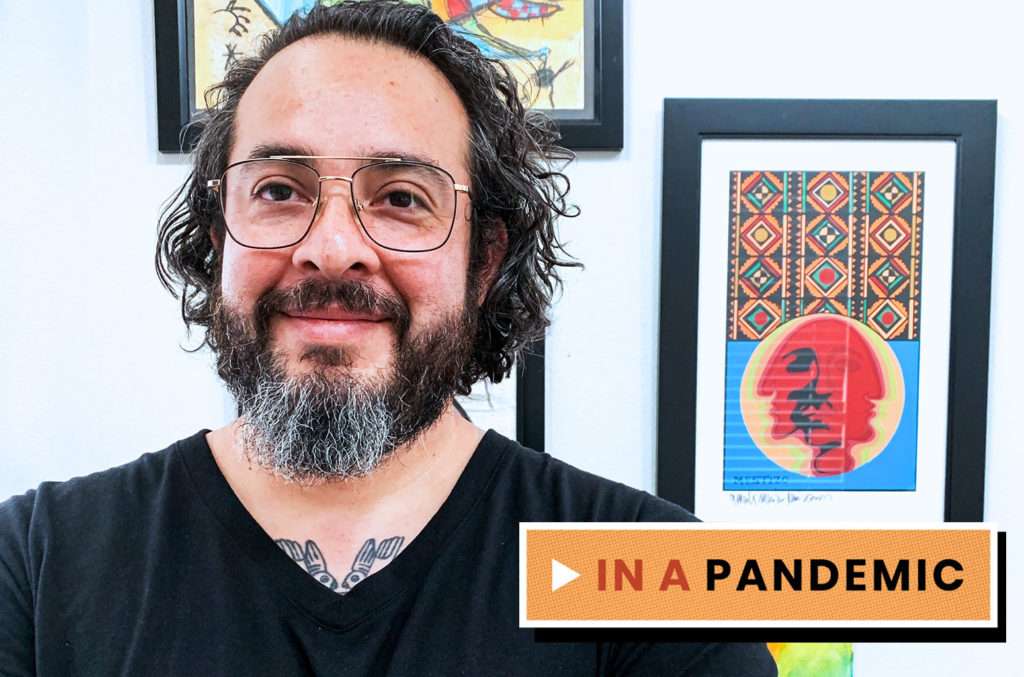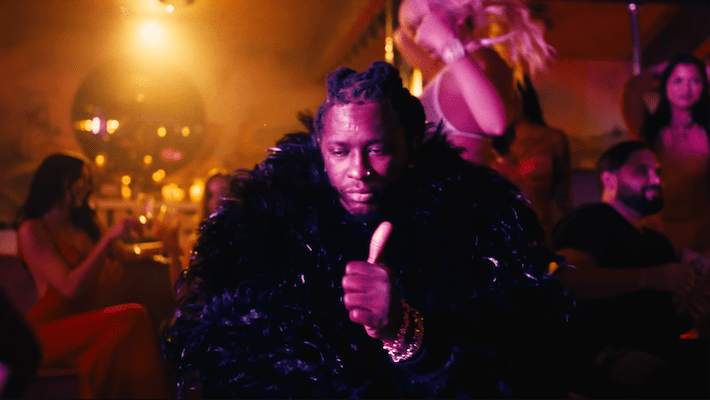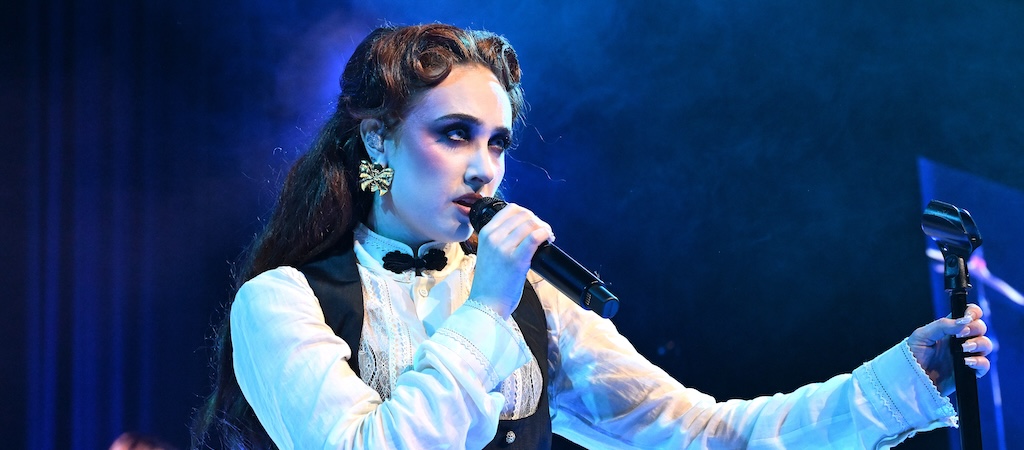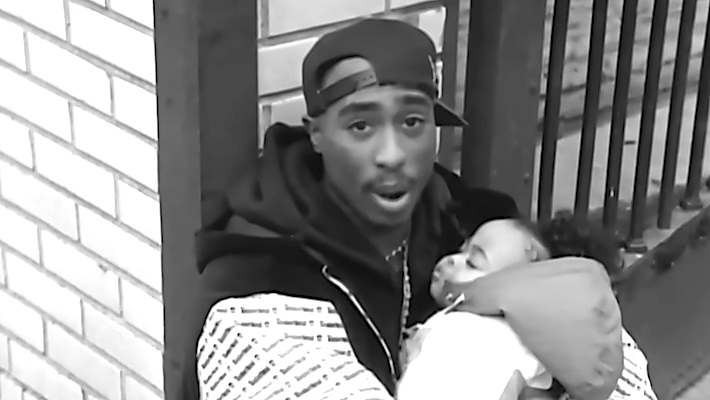As Black Lives Matter protests rage across the nation, Garza has been taking the time to reflect.
When the concert business shut down in mid-March, Bobby Garza abruptly shifted from putting on live events to tearing them down — his company, Austin-based Forefront Networks, had to cancel the California food-and-music festival Yountville Live later that month, and massive productions like December’s Trail of Lights in Austin are in question, too. In early April, his life changed even more dramatically: Forefront furloughed 30 percent of its staff, including him.
As part of Billboard‘s efforts to best cover the coronavirus pandemic and its impacts on the music industry, we will be speaking with Garza, a 43-year-old Forefront creative team leader who used to be general manager of festival producer Transmission Events, each week to chronicle his experience throughout the crisis. (Read the installment here and see the full series here.)
I thought we might run out of things to talk about, but then came the events of the past week.
[Laughs.] Just when you thought 2020 couldn’t get any worse, the universe said, “Hold my beer, here it goes.”
Your kids are 9 and 13; how do you talk to them about George Floyd and police brutality and Black Lives Matter and all the protests?
Honestly, that has been the paramount concern and struggle since all this shit happened. I don’t know. I don’t know the right answer. I read a bunch. I was trying to feel all the feelings that I needed to feel, just as a person of color, in solidarity with anybody else, and thinking about where my place was in these conversations. After some pretty serious reflection, I arrived at this place, which I’m not sure is right: “I’m not going to post anything on social media.” I spent a lot of time talking to people, talking to my friends who have kids. I arrived at “we’re going to listen to some podcasts about becoming an anti-racist.” My kids are very attuned to race and equity because we talk about it. We drove by where some of the protest stuff was happening. I said, “You guys know what’s going on over here? I want to talk about this more with you guys, because it’s important to understand what’s going on in the world.” And I got a lot of blinks and they got real quiet and I felt like that was enough for today. I started compiling a list of movies I want to talk to them about, and music from Sam Cooke to Rage Against the Machine.
Have you attended any of the protests?
No, I haven’t. My kids are nervous about going out in public, still. I grew up believing myself to be an activist, when I was younger, in college. It’s a stressful environment and I don’t want to put them in harm’s way and stress them out all at the same time. I realize that feels like a very convenient position for me to take, as a parent, but it’s also with a lot of deliberation internally. I wanted to go, but I didn’t want to get sick and bring that back to my family.
As a Latino, have you had encounters with police brutality, or cops pulling you over for no reason?
Of course! For me to talk about my run-ins with the cops, and them either being not cool with me or not, is a far cry from what’s happening to people like George Floyd. Everybody thinks that Austin is this bastion of liberalism — there are very real issues around segregation that still have not been solved, and around equity that still have not been solved. My biggest responsibility is to try to learn and empower myself a lot more than I have in the last few years. This is a wakeup call for me. I can’t not think about these things.
I have friends whose very young son is African-American and light-skinned and they’re having this terrible conversation about “do we give him The Talk, about how to deal with racist cops, or do we allow him to pass as white?” It made them cry. Do you think about that type of thing?
One hundred percent, I think about that. I watched this video, a social-media post, with this young black man and his daughter, and he was talking about having that talk. She said what she’s been trained to say: “My name is blah blah blah, I’m 8 years old and I don’t have a gun” and her hands are in the air. And I’m like, Jesus Christ, what world am I living in? But even if I don’t functionally talk to my kids [about that], and I think they might be able to pass, having that conversation is demonstrative in so many ways, just to have people understand what others go through to survive. It’s heartbreaking, and that’s one of the things that I’ve been talking about with some of my friends who have kids: What type of world are we bringing our children into?
It’s the one they will grow up and save all of us from.
I sure as hell hope so, man. And that’s where I’ve been taking some solace in this stuff: My responsibility is to raise the best caring humans I can that celebrate diversity, in a way that doesn’t make other people fear.
Does anything that’s happened in the last week change or augment your thinking about the concert business?
It adds an additional filter to the lens. It should be a reminder to everybody that’s in our industry that while we’re talking about remaining in existence and being able to work in the industry that we love, there are still these other conversations that have to be had, issues around equity and justice. It’s not just venues, it’s artists and where they can afford to live — and people that work in the industry and where they can afford to live. Those places aren’t generally the swanky, homogenous places. They’re the places where people are working class and super-diverse. That begs the question [of] how you fit into those spaces and what your responsibilities are as a member of those communities.
What needs to be done to progress on race and diversity in the concert business?
I don’t know that I have a really good answer for that. If you look at it from a promoter lens, or someone who produces events, it’s the right thing to have a conversation about what your lineup looks like and how you’re helping your community progress in those spaces. That’s been happening for decades: How do more women headliners become part of the conversation? How do people of color become a larger slice of what’s happening in booking? If you’re an agent, who do you decide you want to pick up and further their career? If you’re a producer in the recording industry, how do you expand your horizons outside of your comfort zone to see if there’s other more diverse things you can help bring to the mainstream?
When everything comes back, do promoters have to deal with security differently?
Yeah. Watching these heartbreaking examples of people trying to peacefully protest and paying the price for it, as event producers and concert promoters, we have a responsibility to ensure the people that we hire are the right people. We used to hire Austin Police Department, and if it was a bigger event, we’d have a bigger security company. The more we can make sure those people we award contracts to are educated and of the right mindset is the best for us.
It’s too bad there’s no concert industry right now to make those kinds of statements.
Yeah. There was a potential opportunity to use this bully pulpit to talk about those things. and it’s not possible right now. What really matters is if you say it now, and do it whenever you can, and talk about then. That’s just as impactful.
We usually end on a lighter note — maybe this is not the time for that, what do you think?
It’s funny, one of the things that has been pulling me out of my introspection — we talked about our martial-arts stuff that [my kids and I] do here. Last week, we were working really hard and doing self-defense, which feels really timely right now, and I ended up punching a pad and missing and punched the concrete and jammed four knuckles on my hand. I couldn’t close my hand. I couldn’t really move my thumb. I actually thought I broke it for a second. Every time I was feeling bad, there was this shooting pain up my arm, and I was like, “Oh, I need to give myself a break.” It’s almost like when you put a rubber band around your wrist and try to remember to do something. The one thing I’ve tried to turn into a positive about what’s happening this week is I need to check in with the people I care about a whole lot more.




